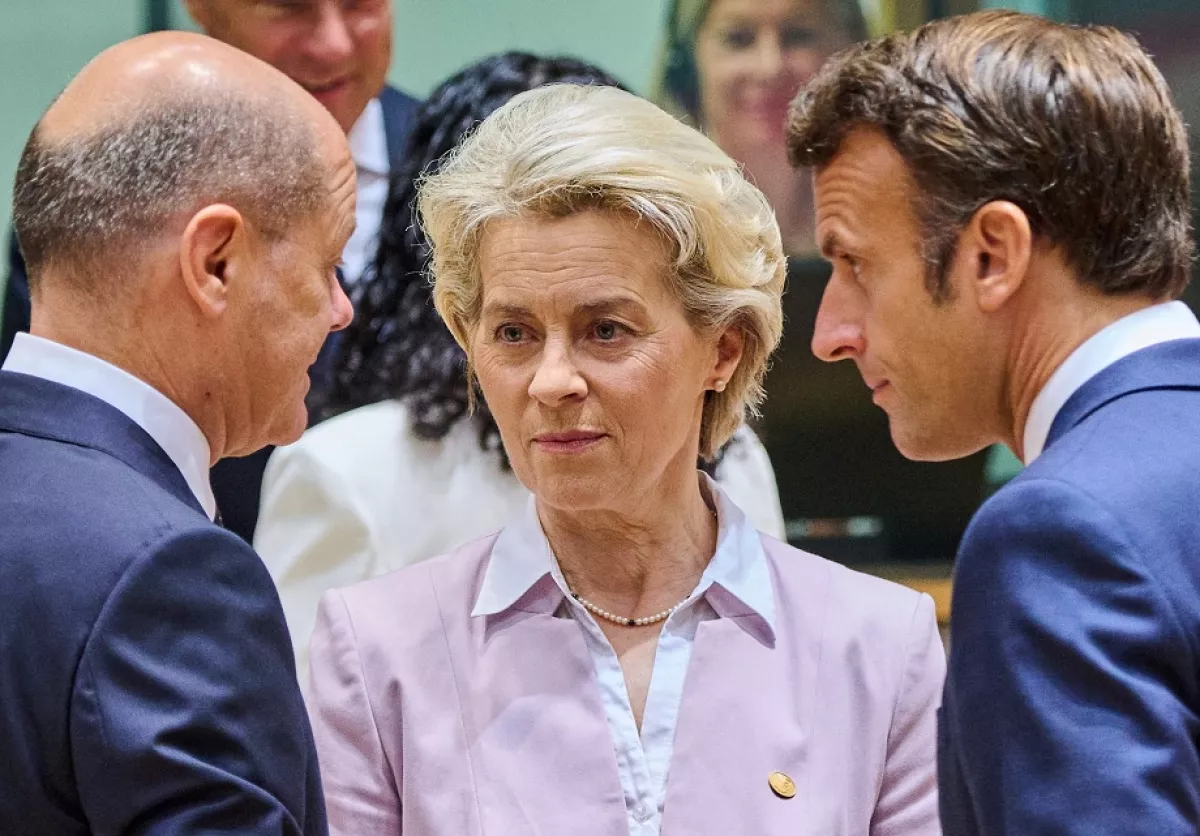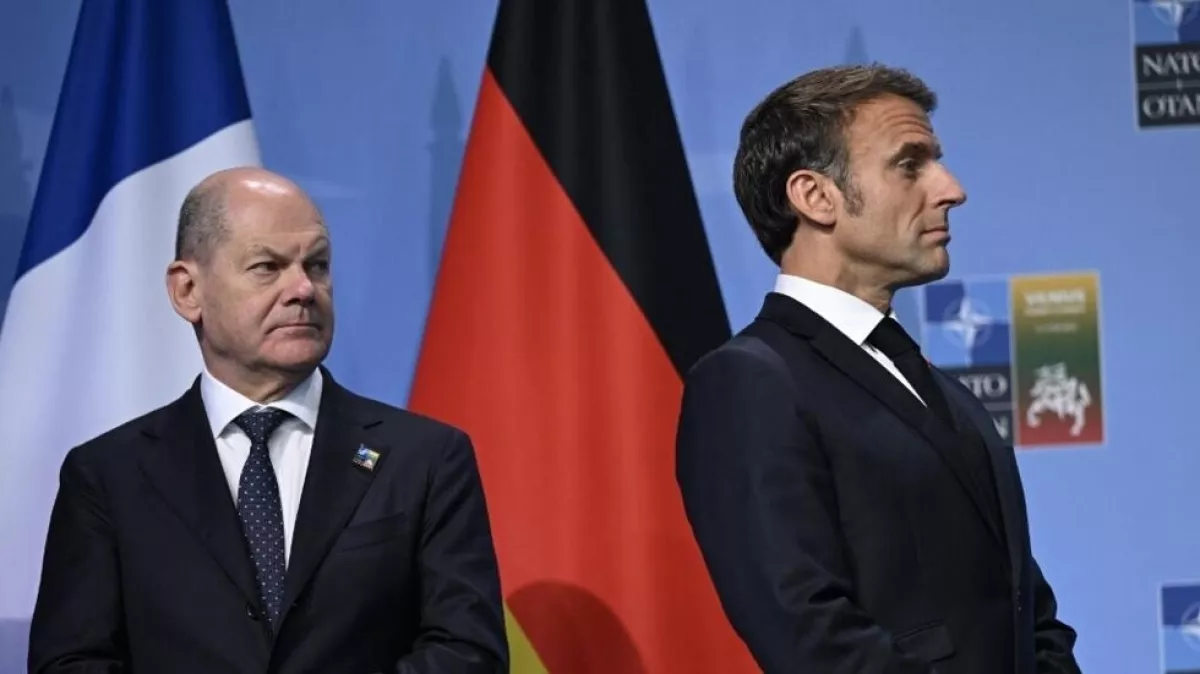Trump’s challenge reveals spinelessness of European leaders A wake-up call for the EU
Thus, the powerful geopolitical pressure exerted by the 47th President of the United States, Donald Trump, across all international fronts has confidently revealed the underside, so to speak, of the European Union. Above all, it has exposed the fragility of the much-hyped unity of the leading countries within this structure.
The discussion here is not about the particular stance of Hungary, Slovakia, and to some extent Italy, which we have witnessed in recent times. Their stances are widely known and no longer surprise anyone. The conversation is actually about the clear polarization of the EU states, which were always presented as a unified and robust conglomerate. Moreover, this "polarizing unrest" has notably affected serious international organizations, which has come as a cold (or hot?) shower for many.
A number of analysts are convinced that the development of these events was triggered by the President of the European Commission, Ursula von der Leyen. When Trump moved into the White House and outlined his foreign policy agenda, she immediately stated that "a lot is at stake" in the EU-U.S. relationship. Emphasizing Brussels' reliance on "pragmatism," she loudly declared Europe's readiness to "always stand by our principles to protect our interests and uphold our values" against any unjustified actions by Washington. She referred to this approach as the "European way."

She elaborated on these thoughts in her speech at the Davos Forum, particularly defining the Paris Agreement (which Trump vehemently opposed) as "the best hope of all humanity." In this light, Europe "will stay the course, and keep working with all nations that want to protect nature and stop global warming." Following this, after acknowledging the change in "rules of engagement between global powers," she expressed confidence in handling the “new reality." She then concluded her remarks with a powerful jab at the new Washington administration, emphasizing Europe's readiness to defend European values in a changing world, including by seeking new opportunities wherever they may arise. As she put it, "This is the moment to engage beyond blocs and taboos. And Europe is ready for change." Against this backdrop, she spoke more softly about China for the first time in the past year.
In other words, von der Leyen effectively entered into an open confrontation with Trump. Perhaps, she had previously gained the support of French President Emmanuel Macron and German Chancellor Olaf Scholz, who met in Paris a few days ago to emphasize the need to "make Europe strong and resilient in the face of Washington's economic threats." How Macron and Scholz plan to achieve something on a pan-European scale when they have been unable to make even minimal progress on domestic issues remains a mystery to everyone. But apparently, not to them, as Scholz declared that "Europe will not bow down or hide," and Macron urged Europeans to "show more ambition and courage." So seriously, Macron has placed the leading role in "building a strong Europe" on... Berlin and Paris. Isn't it laughable? Scholz and Macron, who have failed in their own countries, now position themselves as saviours in the quest to "create a unified, strong, and sovereign Europe."
However, upon closer examination, it becomes clear that these politicians are aware of their own weakness, as, summarizing their generally anti-Trump sentiments, they made concessions towards Washington. For instance, Macron emphasized the necessity of maintaining transatlantic ties, and Scholz spoke about the upcoming "successful cooperation with the U.S. and with the new American president of a consolidated Europe."
So much for independence, it seems. And here comes Angela Merkel, exclaiming the importance for Europe to "act more confidently in its interactions with the U.S." "We will not change Donald Trump," she said, "but we can react to him." Yet, following this bold statement, like Scholz and Macron, the former German Chancellor did not neglect to offer her own gesture towards the White House, calling "transatlantic cooperation even more necessary than before."

Yet, within the European Union, there are also voices expressing a different perspective. For example, the head of European diplomacy, Kaja Kallas, boldly stated that Trump was right in his criticism of Europe for "spending too little on defence." In light of this, she called on Europeans to "wake up." Along similar lines, NATO Secretary General Mark Rutte used the term voiced by Kallas about Trump: "I think Donald Trump is right here that we are spending not enough. And anyway, we have to get it into a balance with what the US is spending. But particularly here, we have to look out for the industry base. So, what our defence industry is producing. And they are not producing enough. But also, in terms of innovation, we are too slow in innovating." Supporting these sentiments, Polish Prime Minister Donald Tusk also spoke out, urging the European Parliament to significantly increase defence spending in Europe: "If Europe is to survive, it needs to be armed. This is not our choice. I am not a militarist." At the same time, Tusk openly supported Trump’s stance on another issue, linking high energy prices with the "green agenda," and urging lawmakers to conduct a full review of the laws concerning this ambitious project.
It is therefore not surprising that the American publication Foreign Policy stated that, by setting misguided goals, Europe has found itself unprepared for the challenges posed by Trump. As a result, in the near future, the continent may find itself unprotected, losing the American safety net.
Undoubtedly, EU leaders will remain in a state of shock for a long time, as, lulled by their "liberal" tendencies, dubbed the "inviolable values of democracy," the powers that be in Europe have forgotten what true political leadership entails. Even the success of right-wing forces in the recent European Parliament elections and in some European countries did not serve as a wake-up call for them. Instead, they continued to indulge in the embrace of this very "liberalism"—which ultimately commits them to nothing.
We await further developments, particularly in light of the widely circulated media reports about Trump's intention to reduce the American military contingent in Europe by 20,000 troops, and to demand a greater contribution from European countries to fund the remaining forces. Europe is indeed signing its own admission of spinelessness.








